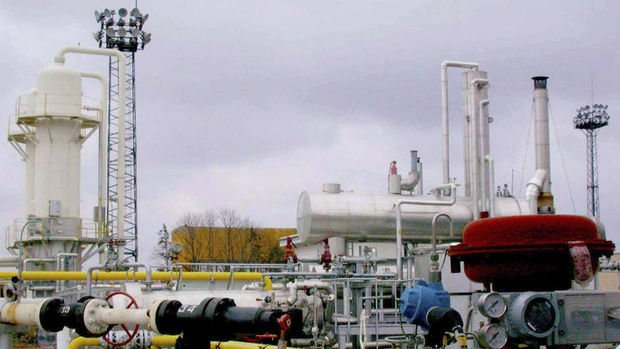Gazprom plans to switch 25% of Turkey's gas payments to rubles
It was reported that the Russian gas company Gazprom plans to switch 25 percent of its gas payments from Turkey to rubles. Gazprom also announced that an agreement was reached with the Chinese company CNPC to switch to yuan and rubles in natural gas shipment payments. Russia plans to make 25 percent of its gas payments with Turkey in rubles. According to a source who spoke to Bloomberg, initially only 25 percent of the payments will be made in rubles and the rest in euros and dollars. The portion to be paid in rubles will be increased over time. President Erdoğan, who met with Russian President Putin in Sochi on August 5, said in a statement he made after returning from Sochi that he and Putin had agreed to make payments in rubles. Erdoğan had said, "Since we will make these purchases in rubles, it will of course be a separate source of financial power between Turkey and Russia, and it will hopefully benefit Russia and Turkey." Half and half In other news, Russian energy company Gazprom announced that an agreement was reached with Chinese company CNPC to switch to yuan and ruble in payments for natural gas shipments. A source speaking to Bloomberg said that payments will be made 50 percent ruble and 50 percent yuan, effective immediately. In a written statement from Gazprom, it was stated that a meeting was held between CNPC Chairman Dai Houliang and Gazprom Chairman Alexei Miller via videoconference. It was stated that gas shipments from Russia’s Far East to China were discussed in particular during the meeting, and that Gazprom had also started work on a new pipeline. The statement said, “At the meeting, additional agreements were signed to the long-term contract for gas shipments via the Power of Siberia pipeline. The parties agreed to switch to yuan and ruble payments for gas supplies to China.” Speaking at the meeting regarding the new payment system, Miller said, “The new payment mechanism is a mutually beneficial, timely, reliable and practical solution. I believe it will make agreements easier, set an excellent example for other companies and provide additional impetus to the development of our economies.” Gazprom seeks to increase shipments to Asia Russia is attempting to move away from dollars and euros in payments in international agreements due to sanctions imposed on its financial system by Western countries. Russian President Vladimir Putin described those imposing sanctions on Russia as “unfriendly countries” and said that these countries will now be able to buy various Russian products, especially natural gas, only in rubles. Gazprom, whose gas shipments to Europe have fallen rapidly due to the sanctions, also wants to increase shipments to Asian markets, especially China. Gazprom shipped approximately 10.4 billion cubic meters of natural gas to China last year through the Power of Siberia pipeline, which has an annual capacity of 38 billion cubic meters.


